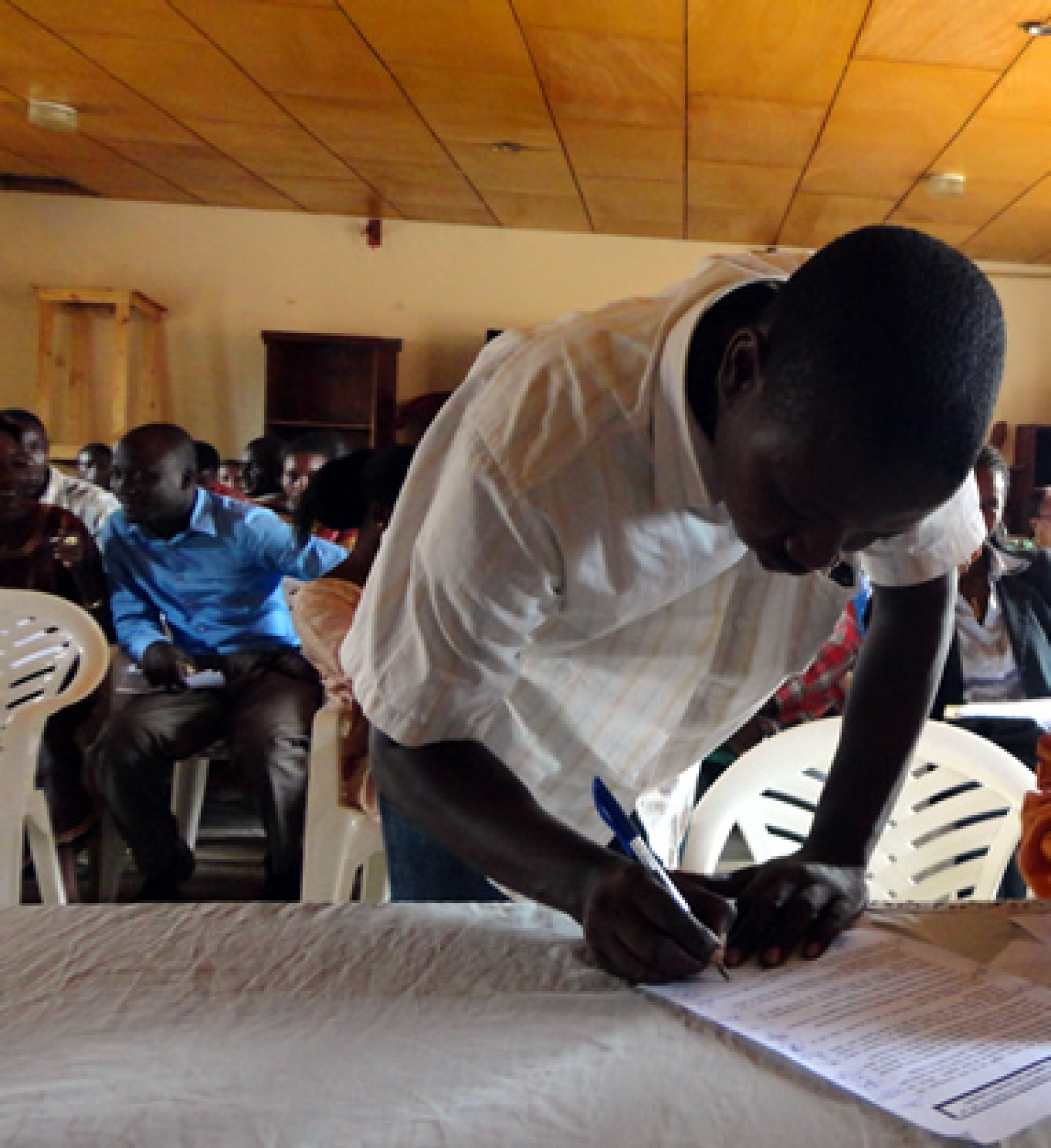
SHARE
Young leaders from Guinean political parties and civil society have pledged to promote peaceful elections and encourage adherence to the country’s code of conduct for legislative elections scheduled for later this year. The public declaration grew out of an Oct. 22 meeting in the capital, Conakry, attended by young leaders representing 29 political parties and grassroots organizations.
Engaging young people is particularly significant in Guinea, where research has shown that they are more likely than other segments of the population to violate the Guinean code of conduct and resort to violence when expressing political discontent.
After more than 50 years of authoritarian rule, Guinea held its first competitive presidential election last June. Because no candidate received a majority, a runoff was held between Alpha Condé and Cellou Dalein Diallo. At times, the campaign period became tense and episodes of election-related violence broke out. However, after Conde's victory at the polls, Diallo moved quickly to calm tensions by accepting the results and urging his supporters to do the same.
The threat of election-related violence persists. Parties will face off again in upcoming legislative elections, set for Dec. 29. In July, Condé survived an assassination attempt, followed by nationwide demonstrations by the opposition in September about the organization of legislative polls. Political tensions remain high. Raising awareness of the code of conduct -- which condemns violence and intimidation by party members -- among Guinean youth and publicizing pledges to adhere to it are expected to help curb violence during the current campaign period.
To help emphasize the provisions of the code, NDI is organizing a series of forums for youth leaders in all five communes of the capital and in each of the country’s seven regional capitals. The October meeting that produced the public declaration was one of these sessions.
“You, the youth, heirs of the Guinea of tomorrow, must mobilize and be invested in all phases of the electoral process as both voters and candidates,” said Anna Diallo, democracy and governance advisor in Guinea for the U.S. Agency for International Development, at the opening forum. She was joined by officials from the Ministry for Youth and Youth Employment, the Code of Conduct Monitoring Committee and the Council of Elders along with more than 60 youth leaders from 15 political parties and 14 civil society organizations.
At the meeting, participants stressed the importance of registering electoral complaints through legal means, such as formally registering complaints, rather than addressing them through violence. The Code of Conduct Monitoring Committee (CCMC) was created to hear complaints about parties’ actions during and after the campaign and to address them fairly. Attendees were encouraged to report code violations to the local- and national-level branches of the CCMC.They also discussed productive ways for young people to get involved in the electoral process, such as running for office or working with civil society organizations to educate voters and get out the vote.
Attendees decided to publish the declaration condemning violence as a way to share the results of the discussion with their peers who were unable to attend.
Despite their different political affiliations and backgrounds, everyone agreed that political parties’ frequent use of ethnic and regional appeals contributed to a pervasive mistrust among Guineans and was detrimental to the political process and the country. Attendees acknowledged their own responsibility to advocate for nonviolence in their organizations and communities. These commitments, along with those expected from the forums still to be conducted, will be collected and distributed through the media and civil society organizations before the December vote.
Related:
- In Guinea, political parties strive to improve the next elections»
- Women candidates prepare for legislative elections in Guinea»
- Political parties sign code of conduct, look to stem recent conflict»
Published Nov. 16, 2011


